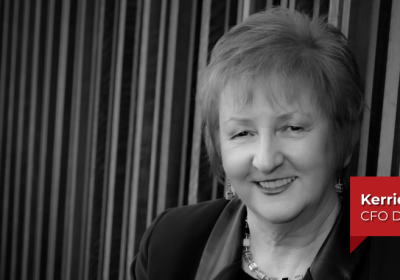
- Author: Nina Hendy
- Posted: September 5, 2022
Decision-readiness: Why as a CFO it’s important to know when and how
Ensuring executives and business managers are decision-ready is a crucial part of the finance function.
That’s according to CFO Megan Woodbury, who recently joined Talent – an Australian-owned tech and digital recruitment company, with 13 locations around the world, including six locations in Australia.
As global CFO, Woodbury joined Talent after resonating with the company’s core values to lead the way, give a damn and strive for the better, stating she felt Talent was an organisation should could see long-term alignment with.
Driving good decision-making that will facilitate an ideal capital allocation strategy requires the CFO to gather many forms the information from the business; needed for company directors to make decisions about the future.
“For me, this is about identifying the right transactional data and analysing it in a way that feeds strategic conversation,” she says.
This means knowing how to successfully engage your finance team wider than the day to day accounting world, and empowering them to understand the transactions and deliver value to the organisation, she explains.
“Being decision-ready is also about using the right processes and technology to be proactive and forward-thinking to make sure we’re ahead of the game.”
In today’s world, there’s a huge amount of data being funnelled into the financial environment over and above the traditional functional accounting methodology, which can add value and assist the business in leading performance analysis.
“There’s a hybrid of information that need to emerge for us to drive value in an organisation over and above your typical functional reporting and strategies,” she says.
“Often, it comes down to how we make sure that our finance subject matter experts extend their skills to be more commercially aware of what information drives value to the business in today’s world.”
Who is Woodbury?
Woodbury comes to the role with 20 years in the finance sector growing and expanding listed companies. She’s got extensive knowledge in audit, treasury, financial management, transformation, stakeholder engagement and people management.
“I particularly love driving compliance and looking for the best ways to achieve optimum operational performance. I’m also passionate about maturing organisations to drive growth by inspiring the way we integrate and work collectively in our chosen markets,” Woodbury says.
Woodbury understands the recruitment sector well. Prior to joining Talent, she performed a dual role as chief operating officer and chief financial officer at Adcorp Holdings Australia, where she was responsible for driving the expansion and growth of the organisation in core operations and emerging markets. She had been with Adcorp for nine years and has always worked with listed entities, giving her a strong understanding of data governance and compliance.
Bolstering team efficiency
To achieve that, she’s looking for ways to introduce efficiencies into finance teams. The strength of the team is paramount, she says.
“The key is to ensure that everyone in the finance function moves out of their own silos. Ultimately, data becomes the source of truth in terms of how we make decisions at an executive level, so you need all areas of the business working together on collating and presenting that data.
“It’s about empowering teams to have relationships and conversations, and thinking more broadly about how we bring all that data into a single source of truth,” she says.
The role of the CFO is to drive multiple sources of truth to farm good information. “When starting in a new role, it’s crucial to start out by building internal relationships as you work towards understanding what drives performance in the business,” she says.
Often, organisations have moved away from data as a single source of truth given the rise in cloud-based systems technology and AI as system infrastructure becomes more complex, she says.
“The solution for us as leading financial data that drives value is identifying what data is important to the industry or organisation that we’re in. How do we pull that data in from multiple sources, with some reliability and credibility, and how do we examine that data to accelerate and lead decision-making.”
As a leader, she doesn’t mind getting her hands dirty, saying that engagement is a really important part of the role.
She makes a point to regularly have conversations with everyone in the organisation. “Quite often, those in the less senior roles have more insights in the business and can see more clearly about how things should be operating,” she says.
“I’ve worked to be really personable and vulnerable from day one. I set time to be available for anyone in the organisation, and I’m eager to learn how everything happens in the business.”








